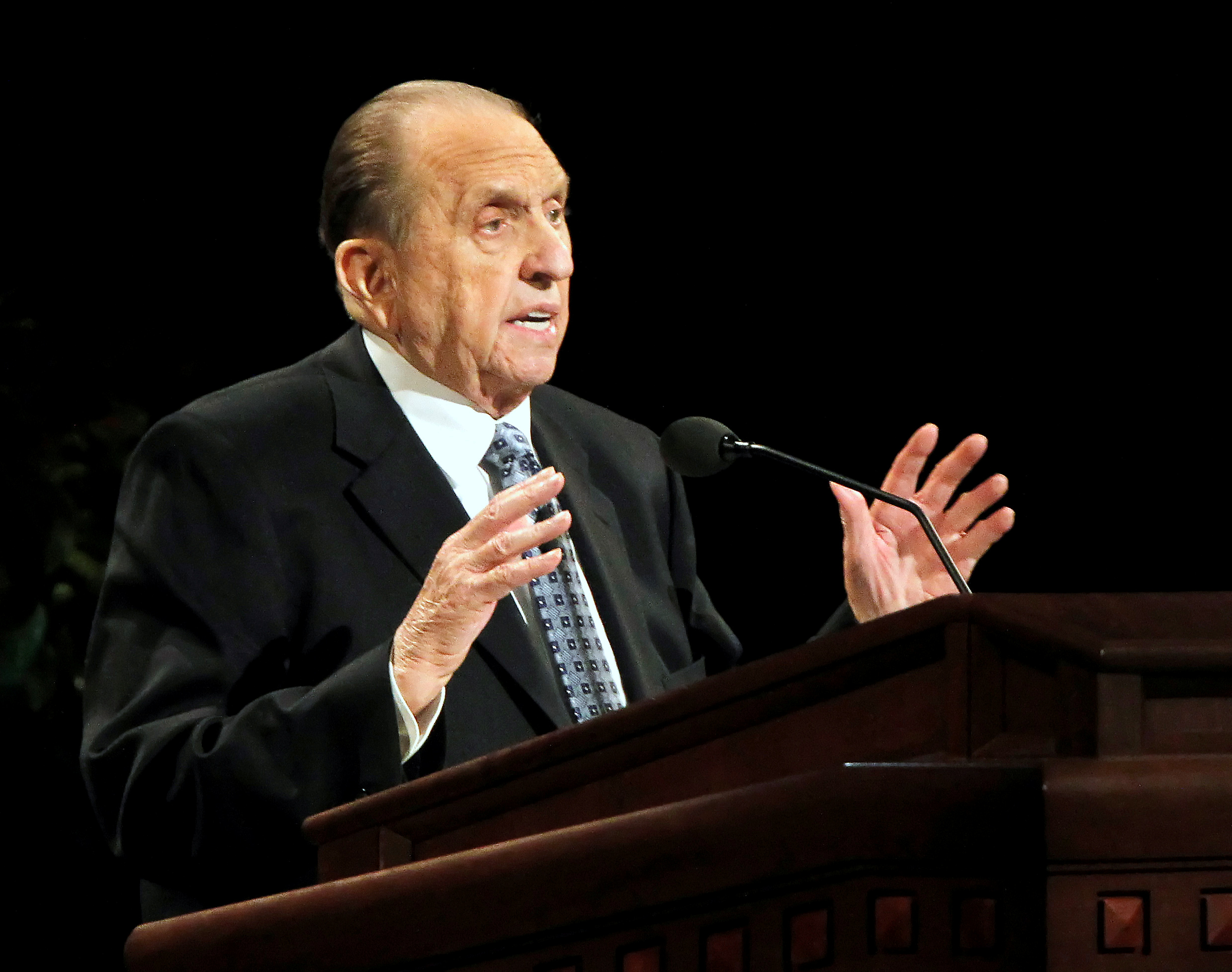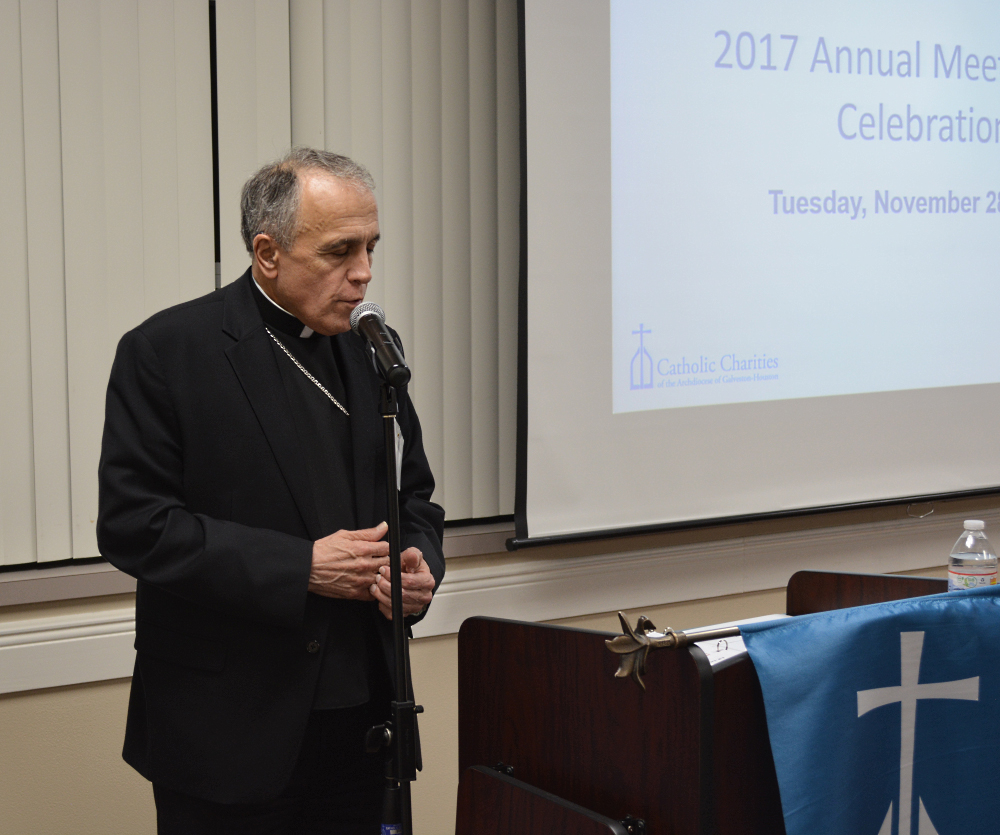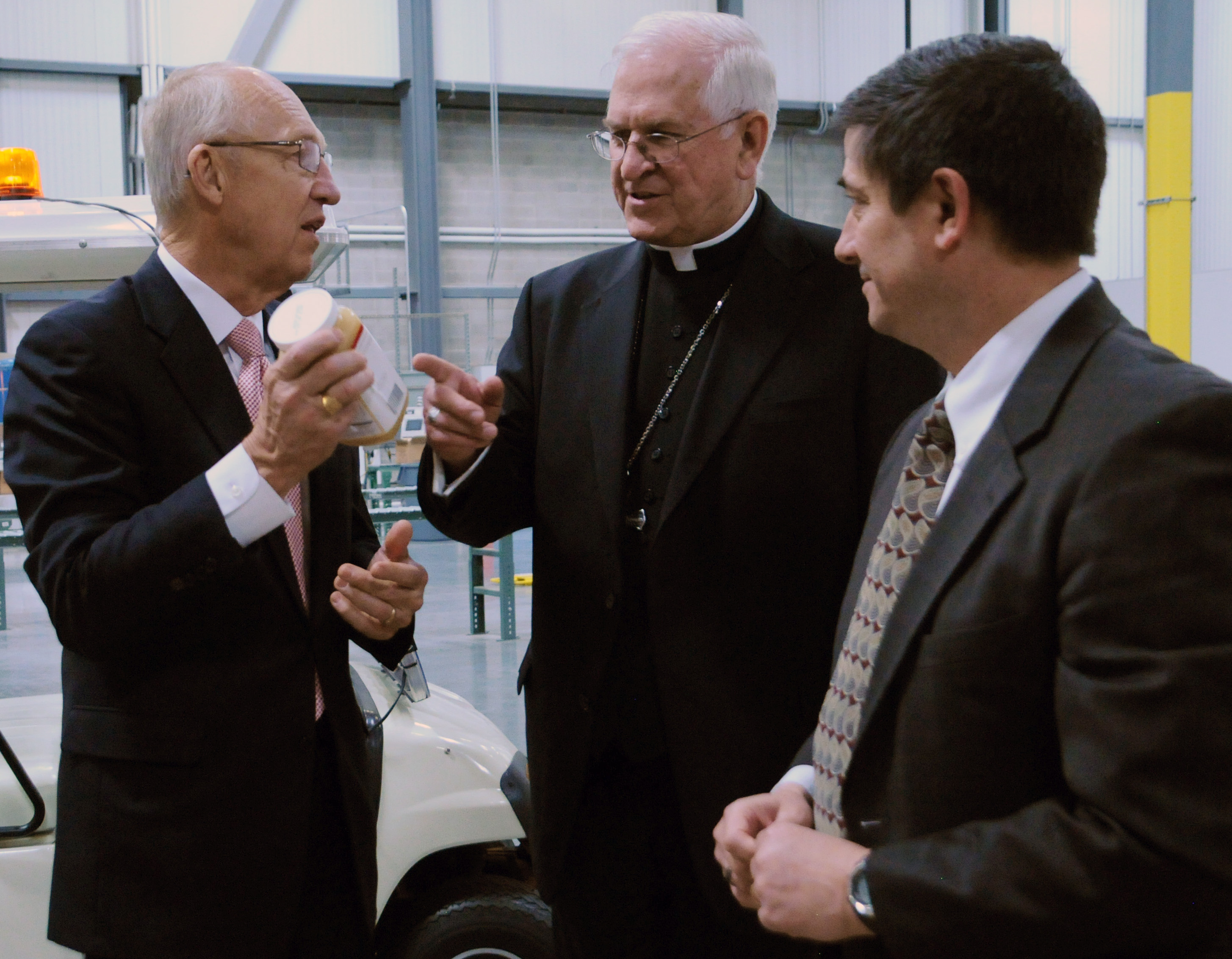
WASHINGTON (CNS) — Cardinal Daniel N. DiNardo of Galveston-Houston, president of the U.S. Conference of Catholic Bishops, mourned the death of Thomas S. Monson, president of the Church of Jesus Christ of Latter-day Saints. Monson, 90, died Jan. 2.
“During his tenure as president, understanding and friendship developed between our two communities on national and local levels,” Cardinal DiNardo said in a statement issued Jan. 3.
“As we engage important questions on family and the dignity of the human person, Catholics and Mormons work together and support each other. Today, Catholics join their Latter-day Saints brothers and sisters in commending his soul to the mercy and love of God,” the cardinal said.
Monson was the 16th president of the LDS Church, leading the world’s nearly 15.9 million Mormons, including approximately 423,000 in Arizona.
“On behalf of Bishop Thomas J. Olmsted and the Diocese of Phoenix, our sympathy and prayerful support is extended to the members of the Church of Jesus Christ of Latter-Day Saints at the death of President Thomas S. Monson,” said Fr. Michael Diskin, director of the Diocese of Phoenix Office of Ecumenism and Interreligious Affairs. “May all who grieve his death be consoled by your faith in God.”

Monson taught briefly at the University of Utah, then worked in the advertising department of the Deseret News, based in Salt Lake City, and the Deseret News Press, the Mormons’ publishing arm.
In 1959, at age 31, Monson became president of the church’s Canadian mission serving the provinces of Ontario and Quebec, working there until 1962. In 1963, he joined the church’s Quorum of the 12 Apostles — the youngest man in 53 years to serve in the post and 17 years younger than the next-youngest member, Gordon B. Hinckley, whom Monson succeeded as president in 2008.
Monson is credited with opening his church’s archives to researchers and scholars, even at the risk of them uncovering documents that contradicted Mormon teaching and practiced, and with cultivating more missionaries within the church and opening the door for more and younger women to serve as missionaries. However, he drew the line at ordaining women to the Mormon clergy and fought against same-sex marriage. In 2015, the church declared any Mormons in such a union to be apostates.
He also wrote to Mormon churches in California in 2008 urging them to support Proposition 8, which would define marriage as a union between one man and one woman in the state. The measure, which also received support from the California Catholic Conference and the Knights of Columbus, passed but ultimately was rejected by the courts. A similar joint effort occurred the same year to pass Proposition 102 in Arizona, which was also struck down by the courts in 2014.
In a letter to Monson at the time, Archibshop Joseph E. Kurtz of Louiseville, Kentucky, who served as chairman of the U.S. bishops’ Ad Hoc Committee for the Defense of Marriage, offered his support and gratitude the Mormon community.
“We have watched with great distress in recent weeks as some members of society have reacted intemperately, and sometimes even violently, to the decision of the voters in support of Proposition 8 in California,” wrote, at the time. “We have been especially troubled by the reports of explicit and direct targeting of your church personnel and facilities as the objects of hostility and abuse. We pray that prudence and healing may prevail.”
Archbishop Kurtz then offered them “profound gratitude” for their role in “the broad alliance of faith communities and other people of good will” who joined together to protect marriage while also “witnessing to the honor and respect due to every human person created in the image and likeness of God.”

In a statement from Bishop Oscar A. Solis of the Diocese of Salt Lake City, where the LDS Church is headquartered, offered his “heartfelt condolences” to the church’s leadership, Monson’s family and the overall Mormon community. The Diocese of Salt Lake City, which encompasses the entire state of Utah, borders the Diocese of Phoenix to the north.
“He joyfully served his church and the broader community selflessly and humbly for many years,” said Bishop Solis in a statement. “The president has been a good friend and supporter in our mutual efforts to support the common good and care for the most vulnerable both at home and abroad. Catholic Community Services as well as the Good Samaritan Program have benefited from his commitment to the poor. For President Monson, the Sermon on the Mount was not just a platitude but a way of life.
“President Monson was an advocate of unity and believed in the goodness of each person. He embraced people regardless of faith, seeing in them the image of Jesus. His was a ‘human’ touch of kindness and dignity that will long be treasured. We join in prayer with the LDS faithful at this difficult time.”






